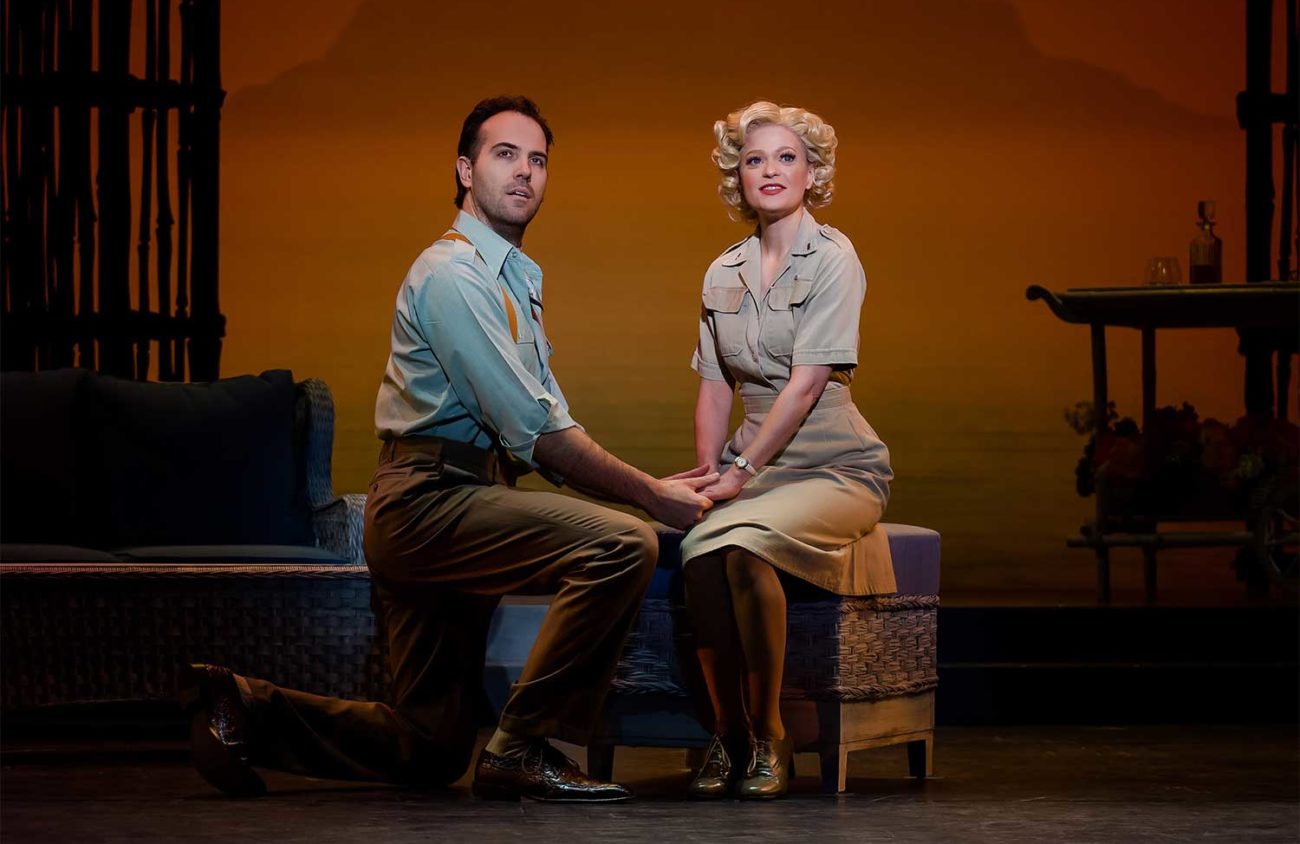After months of a gloomy winter, it might be time for the sunny island of Bali Ha’i, the fictional setting of South Pacific. But watch for some of the overcast that comes with the World War II musical by Broadway giants Richard Rodgers and Oscar Hammerstein II.
A traveling Broadway cast brings the “gray area” of the production, Woody Minshew (Lt. Joseph Cable) tells Eugene Weekly, which includes racism, love and environmental degradation.
South Pacific tells the story of quirky American soldiers occupying the island, an entrepreneurial Tonkinese woman named “Bloody Mary” and, of course, romance. There’s Cable who falls in love with Bloody Mary’s daughter, and the American nurse Nellie Forbush, who has a romance with the French expat Emile de Becque — but she has to wrestle with her prejudices of potentially being a mother to his mixed-race children.
As with all of Rodgers and Hammerstein’s productions, South Pacific has several songs that are a part of the Great American Songbook, including “I’m Gonna Wash that Man Right Outta My Hair,” “Some Enchanted Evening,” “There Is Nothing Like a Dame” and “Bali Ha’i.”
But one song from the musical almost ended the show when Rodgers and Hammerstein were developing it back in the ’50s. Producers wanted to pull “You’ve Got to Be Carefully Taught” because of its lyrics, Minshew says, leading the duo to issue an ultimatum: Either the song runs or the show dies.
It’s a song that’s around one minute in length, but its lyrics say racism is what people are taught, not born with. “You’ve got to be taught to be afraid/ of people whose eyes are oddly made/ and people whose skin is a different shade,” the character Cable sings in the musical.
“To keep that in the show in the early ’50s is a beautiful thing,” Minshew says. He says the song may have led to future generations taking bigger leaps with addressing major themes in shows, from Jesus Christ Superstar to Hamilton. “It’s really one of the early seeds.”
South Pacific is based on a Pulitzer Prize-winning anthology of short stories called Tales of the South Pacific, and the musical itself won a Pulitzer Prize for drama in 1950. The production’s most popular film adaptation was in 1958. The traveling Broadway production that features Minshew is presented by the American Theatre Guild, a touring presenter.
Minshew says that what sets the traveling Broadway production apart from other stagings is that it explores more of the grittiness of wartime in the Pacific. He says director Jeff Moss didn’t want to depart too much from the playbook, but audiences should notice the degradation that occurs on the American GI-occupied island.
“The beautiful island exists in the beginning. Then throughout the show you see how the U.S. military has taken the palm trees, and you see them all cut out, and it’s made into a big shower and stumps,” Minshew says. “You see the ravaging of the island for the war effort.”
Previous major productions of South Pacific don’t pull at that thread, he adds, instead focusing on Bali Ha’i being a tropical paradise.
The central theme of South Pacific, Minshew says, is love, as with most of the musicals by Rodgers and Hammerstein. “It’s about these two couples who have to wrestle with their prejudices and their own outward influences and sources on what they should do and how they should act,” he says. “Choosing love over greed and ambition, because that’s what we’re put on this planet for.”
Despite South Pacific’s seemingly simple central theme, he adds, there are layers to what the message of love is, and it surpasses the World War II setting. At first, the musical sounds simple, he says, but when you leave the theater, the power of South Pacific hits you. “There are a lot of layers and complexities,” he adds, “and it lives with you.”
South Pacific is 8 pm Friday, March 18, 2 and 8 pm Saturday, March 19, and 1 pm Sunday, March 20. Tickets start at $20.50. Visit HultCenter.org for more information.
